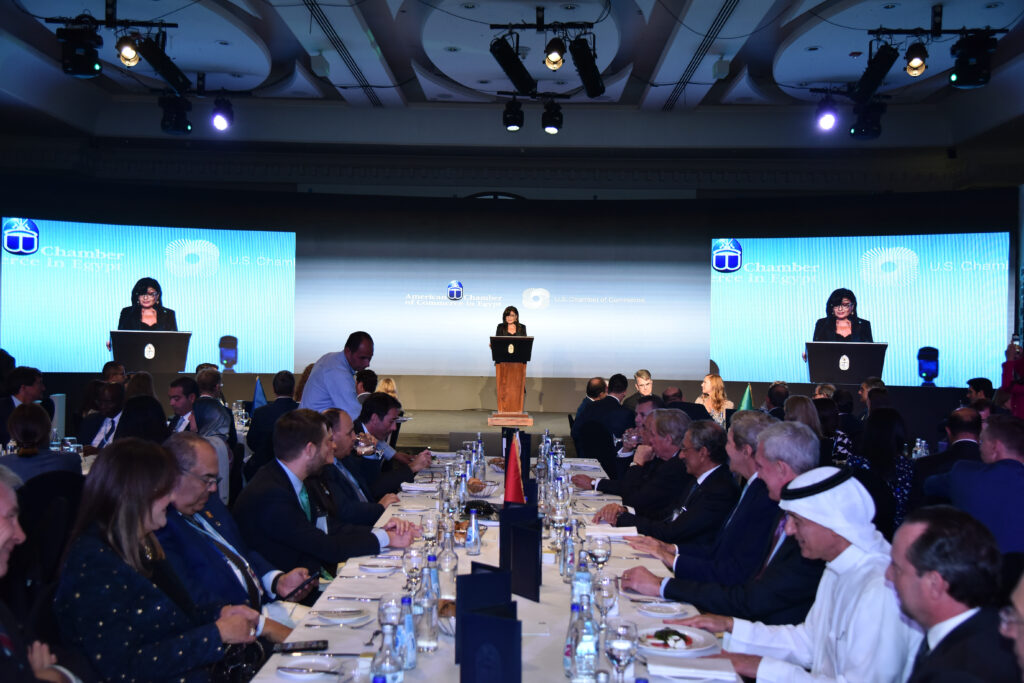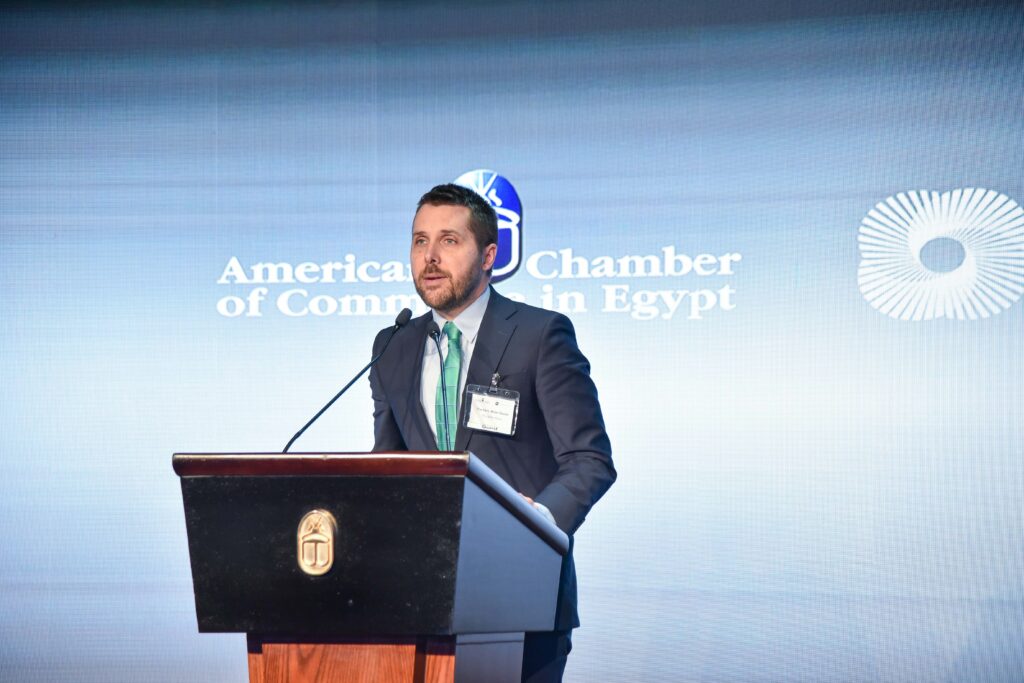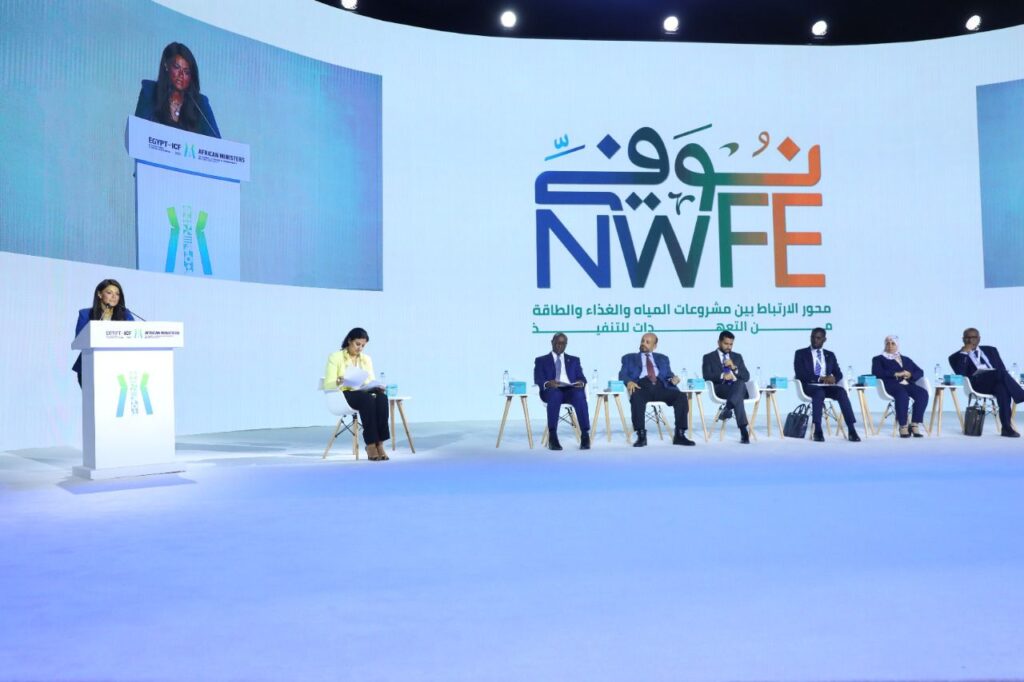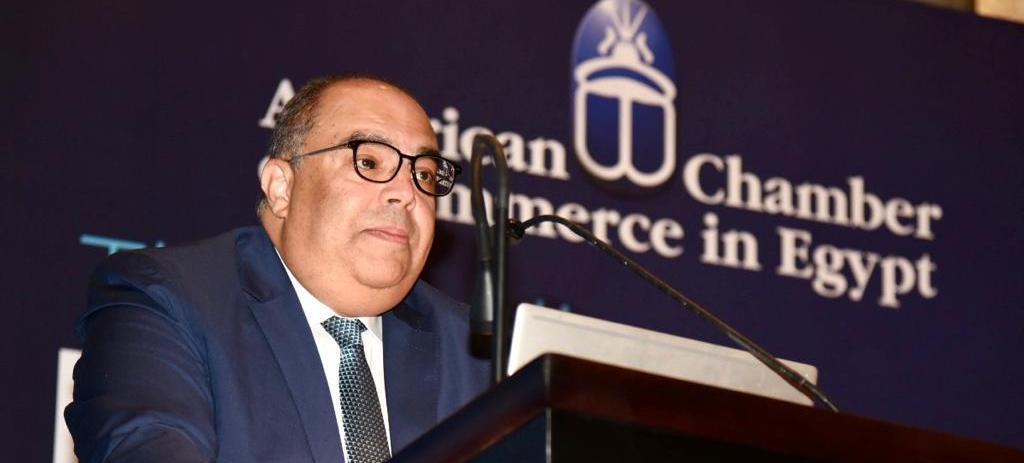John Kerry, a former US secretary of state and now the special presidential envoy for climate has called for the private sector to lead global decarbonization efforts and keep alive the goal of limiting temperature increases within a key global warming threshold of 1.5 degrees Celsius.
“World leaders have less than twelve years to implement policies to avoid the worst consequences of the climate crisis, not the crisis itself,” Kerry told the special dinner event titled “US-Egypt Partnership: Towards a Sustainable Tomorrow,” hosted by the American Chamber of Commerce in Egypt, in partnership with the U.S Chamber of Commerce on November 12 in the Red Sea resort city of Sharm El Sheikh.

Nearly 100 heads of state and government met in Egypt to attend the Conference of the Parties (COP27) summit, amid calls to deepen carbon emissions cuts and to financially back developing countries already devastated by the effects of rising temperatures.
In a speech, Kerry asserted that the best way to move is to get the marketplace moving and the private sector engaged. “The private sector is going to produce the new technologies, deployments, new products that are going to get us over this hump. And what we have to do is work in partnership. Without it (the private sector), no government has enough money to accelerate to support the process. We need everybody engaged in this,” Kerry added.
He explained that three continents have experienced record-high levels of heat on the same day. 10 million people are now dying from extreme heat every year and around 15 million people are dying as a result of the air quality, which is affected by emissions and pollution, Kerry cited.
“If we don’t do enough reduction of emissions between now and 2030, we can’t get to net zero by 2050,” he warned. Kerry highlighted that every decimal point hike in temperature will cost countries billions of money to reverse the impact of climate change. “It is cheaper for countries to respond rapidly now than to delay and wait,” he added.
According to a 2018 UN report on climate finance, countries have to spend collectively around $2.5-4 trillion dollars every year for the next 30 years to transition and achieve the goal of net zero by 2050.
“We’re not close to that,” Kerry noted during his speech, “But we work like crazy to put together a blended finance structure that allows us to be able to deploy the trillions of dollars that this requires.”

US-Egypt partnership
Investments in the United States will reduce global costs of solar and onshore wind by two to four percent globally, according to Brian Deese, head of US President Joe Biden’s National Economic Council. He noted that this is about $100 billion in global cost savings by lower costs and implementation of key energy technologies by 2030.
Deese said in a speech that he values the extraordinary opportunity when the partnership can actually unlock greater ambition. He asserted that the transition to the global clean energy economy may prove to be the greatest economic transformation since the industrial revolution.
US action — to boost the development and manufacturing of clean energy technologies — will help reduce transition costs for other countries, Deese noted. “Lower costs will help larger economies to bolster their clean energy security, as well as developing economies trying to move ahead and advance with cutting-edge technology,” he added.
The US is committed to investing in building a clean hydrogen economy, he said. By doing that, the US will be a reliable partner and provider of clean low-cost fuel to global partners. Still, in order to make good on this promise, countries have to increase their climate ambitions and capitalize on the inflection point by engaging in multilateral and bilateral partnerships.
“The opportunity to invest at scale in this transition has never been a better bet in the history of this planet. It’s a catalytic moment that many of us have been waiting for, for so long,” Deese said.
He concluded that the partnership and the investment of the private sector are what will ultimately unlock this progress.
“Seven years on from Paris, I do stand here with a bit of anxiety that our time is running short. We need to make more progress. But that anxiety is matched and in fact, exceeded by this feeling of optimism that we can find creative ways to partner with countries and leaders like Egypt, that we can demonstrate that that goal of limiting warming to 1.5 degrees Celsius is not only within sight but within our reach,” Deese said.







